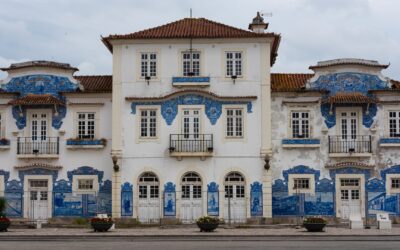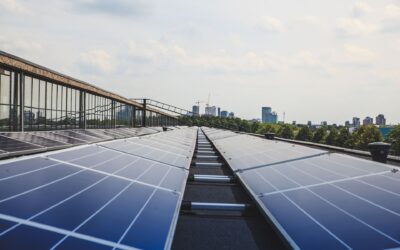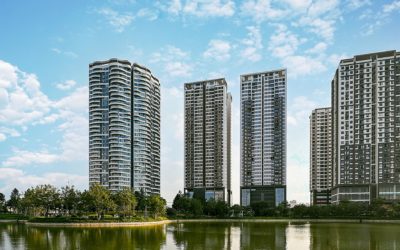CARTIF projects
DEDALUS
Data-driven Residential Energy Carrier-agnostic Demand Response Tools and Multi-value Services
Description
DEDALUS will design, develop and demonstrate micro (home/flat) and macro (building and district) participatory demand response ecosystems in multiple energy vector systems and with a social and human science based approach. The proyect pretends to:
(a) Facilitate and expand mass participation of energy consumers in demand response schemes
(b) Adapt to a variety of single (electricity, heat) or multiple (electricity versus heat and natural gas) energy source scenarios at the building/district scale, while strengthening social interactions within the respective communities.
With this objective, will be implemented:
1) A social sciences framework to generate incentives and intervention and stimulus tools. 2) AI-based clustering and segmentation algorithms of individual consumers/buildings/districts. 3)Open API for intelligent devices prepared for demand response. 4)Adaptation to EnergyDataSpace for a bigger interoperability of the demand respones and privacy preservation. 5) Digital twin for consumer planification flexibility. 6) Models and flexibility tools based in the comfort for apartments with services for elderly. 7) Flexibility management tools for buildings an energy communities of physic/virtual districts. 8) Optimal aggregation of flexible energy actives for urban and decentralized heating. 9) Business Sandbox with novedous business models based in social innovation of collaborative economy.
DEDALUS solutions will be validated for 5 large scale pilots and replicated by 2 multipliers in 7 countries.
Objectives
-
- Using tools and methodologies based in Social Sciences and HUmmanities to facilitate the participation in energy consumers in residencial demand response strategies.
- Adapt and extend interoperability laters of Energy Data Space generated in the ENERSHARE project, including privacy mechanisms based in blockchain to share flexibility data and enable the use of intelligent devices focusded on demand response.
- Develop demand response algorithms, models and technological services to apply demand responde in energy efficient residential buildings.
- Explore and validate new business model that apply collaborative economy principles in residential environments that apply demand response strategies.
- Demonstrate and validate solutions develop in 7 pilots in different localitations and climatic areas.
Actions
- Definition of data models and standars for the integration of felxibility services and demand response.
- Development of optimal control algorithms for the application of demand response strategies in energy communities.
Expected Results
- Data models and definition of the different layers that allow the modelling of flexibility services and demand response and its integration on interoperable integration of energy services.
- Optimal control algorithms for the application of demand response strategies on energy communities.
Partners
|
|
H2020
GAP-101103998

Total Budget: 7,359,075 €
CARTIF Budget: 251,875 €
CARTIF Financing: 251,875 €
Duration: 01/05/2023 – 30/04/2023
Responsible
Susana Gutiérrez
Energy Division
susgut@cartif.es
Networking
Energy Efficiency projects:
ENERGYGUARD
The EnergyGuard project will create an innovative test platform for artificial intelligence (AI) in the energy sector, integrating five European test centres with a green HPC infrastructure.
SIRCULAR
SIRCULAR seeks to transform the construction sector into a sustainable, low-carbon industry through decarbonisation strategies. Its main objective is to reduce carbon emissions by minimising reliance on virgin materials and exploring low-carbon alternatives, such as recycled materials.
SMARTeeSTORY
SMARTeeSTORY will create an integrated intelligent building automation and control system to monitor and optimise the energy performance of historic non-residential buildings, according to an innovative multi-domain approach (integrating the 9 domains proposed by the ISR methodology).
FoSSIS3
FoSSIS3 objective is to develop an operational Platform based on artificial intelligence to support decision-making in the energy planning process, through the characterization and estimation of the solar resources, and the development of analytics that support the strategy to improve the energy behavior of the building sector.
BuildON
BuildOn pretends to develop a generic solution and highly replicable to offer services on buildings, facilitate the integration of their systems and technologies and with it, help to construct a new generation of smart buildings.
ENFLATE
ENFLATE applies technologies on data-driven energy and non-energy services, which it will replicate in different geographies and climates, considering different consumer needs.
DIGIBUILD
DigiBUILD overview is to provide an open, interoperable, cloud-based toolbox to transform buildings from traditional `silos´ into interoperable, smarter, digital buildings based on consistent and reliable data
MATRYCS
The main objective of MATRYCS is to define and deploy a Reference Architecture for Buildings Data exchange, management and real-time processing, and to translate this reference architecture into an Open, Cloud-based Data Analytics Toolbox. It will enable AI-based cross-sector analytics for smart energy-efficient buildings, based on seamless data-information-knowledge exchange under respective sovereignty and regulatory principles.
PROBONO
PROBONO brings together a European multidisciplinary consortium of 47 partners, to turn the six European districts into Green Building Neighbourhoods, with positive energy balance and zero carbon emissions: two large-scale demonstrators and four living labs representing business/owner promoters of the green buildings and neighbourhoods transition.
BD4NRG
BD4NRG envisions to confront big data management challenges for the energy sector, giving a competitive edge to the European stakeholders to improve decision making and at the same time to open new market opportunities.
EnergyChain
EnergyChain goal is to use Blockchain to develop a system that will support the energy exchange between prosumers without the need of a central entity in charge of the managing.
frESCO
frESCO aims to engage with ESCOs and aggregators and enable the deployment of innovative business models on the basis of novel integrated energy service bundles that properly combine and remunerate local flexibility for optimizing local energy performance both in the form of energy efficiency and demand side management.
Auto-DAN
The Auto-DAN project aims to enable homes and small businesses across the EU to optimize their energy consumption and provide and assessment of the live energy performance of a building. The solution will focus on the assistive role automation will have in buildings.
MiniStor
MiniStor aims at designing and producing a nvel compact integrated storage system for achieving a sustainable heating, cooling and electricity storage adaptable to residential buildings.
SO WHAT
SO WHAT project aims to develop and validate an integrated software for auditing industrial process, planning and simulation of waste heat and cold (WH/C) valorisation systems towards the identification of economically viable scenarios where WH/C and renewable energy sources (RES) cooperate to match local demand.
BIM-SPEED
BIM-SPEED has as its main objective to seeks to increase the use of BIM methodologies in the deep renovation of buildings for energy efficiency
SUDOKET
The Sudoket project focuses its activity on the mapping, consolidation and dissemination of Key Enabling Technologies (KETs) for the construction sector in the SUDOE space.
SISGENER
SISGENER’s objective is the development of a low-cost comprehensive energy management system for the management of generation and consumption that takes place in buildings with centralized services.
QUDRA
Energy improvement plan that allowed the reduction of municipal energy expenditure and the training of municipal technicians in energy matters
GAPSA
The GAPSA project’s main objective is to clearly define the real savings obtained due to the savings measures that will be implemented in the 33 primary care health centers
REEMAIN
The REEMAIN project combines cutting-edge knowledge and experience to develop and demonstrate a methodology and platform that drives the efficiency of energy and material resources.




















